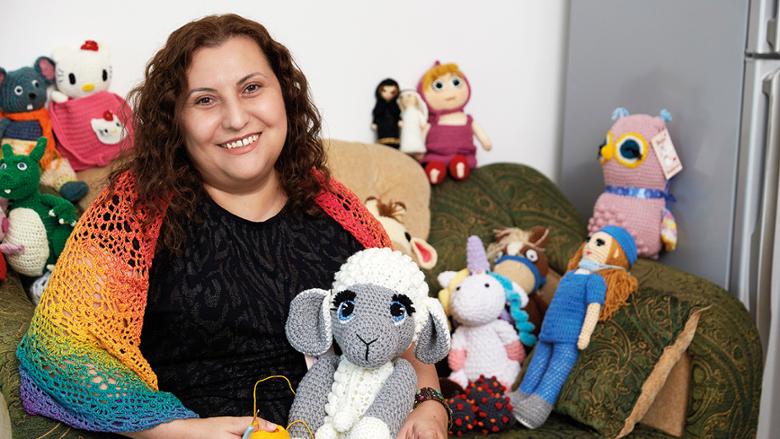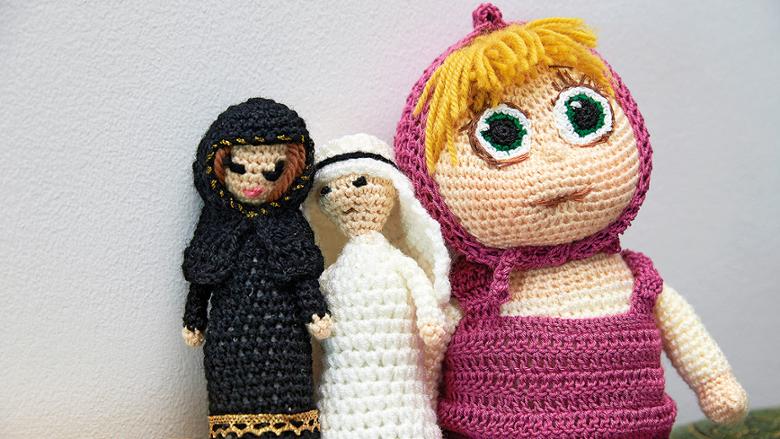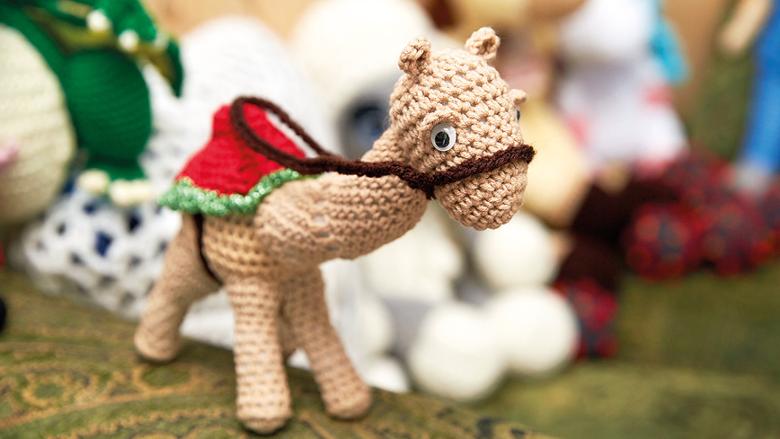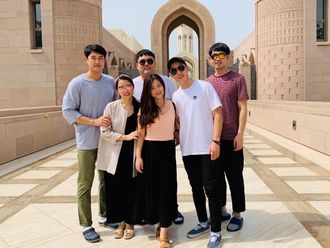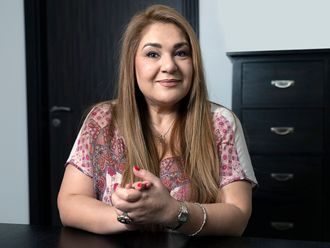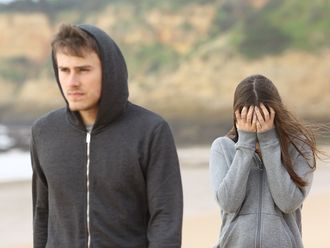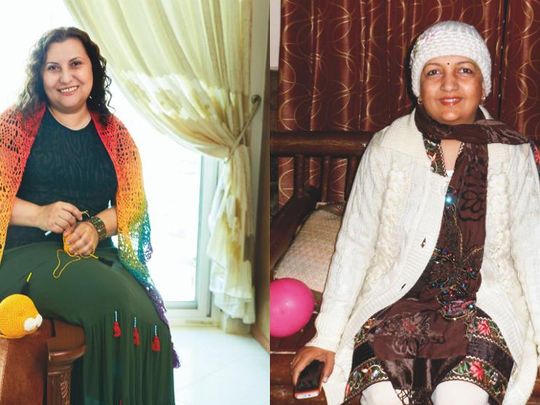
Narine Geroyan adjusts a brilliantly coloured shawl that she has thrown around her shoulders while welcoming us into her cosy home in Sharjah. Holding her most recent crochet creation – a cute and cuddly toy resembling Shaun the Sheep – she then settles into a comfortable armchair as our photographer gets busy.
On the arm and back rests of a comfy single-seater sofa are an armload of soft toys – mischievous-looking mice, a green and white dinosaur who looks like he’s upset over something, a baby doll who appears to be hungry, a white bunny with a cute pink apron, a pink, blue and white unicorn, a meek-looking brown donkey… Elsewhere in the house are splendid curios, flamboyant scarves even face masks to keep up with the times all filling the house with a riot of colours.
"These are my friends," says the 43-year-old mother of two who has crocheted the soft toys, curios, masks and shawls.
They are clearly more than friends. For Narine, crocheting helped give her solace when dealing with the painful process of recovering from breast cancer.
Diagnosed in 2015 with stage three breast cancer, at a time when she didn’t even know what the word carcinoma meant, Narine had to endure many hardships along the path to recovery.
"I was the first in my family to get the disease. My children were very young and I was laid off from my job of seven years," she recalls. Due to personal reasons, she moved to her country Armenia for treatment taking along her children, Tigran and Zara, with her.
To start with, the diagnosis itself came as a shocker. "I remember calling my husband to inform him. He was driving at the moment and when he heard my words he was so distraught he missed his destination."
Long drawn out
Narine initially didn’t tell the kids about her condition. "My son was just 12 and daughter 10 and I didn’t want to stress them out."
When her treatment began and she lost her hair she wore a wig. "They thought it was my new hairstyle," she says.
The treatment plan was long drawn out – a mastectomy, eight rounds of chemotherapy, a course of radiation, apart from a course of injections.
During her treatment in Armenia, Narine remembers her friends from Dubai calling her regularly encouraging her to be strong and stay positive. "Those calls were truly helpful," she says.
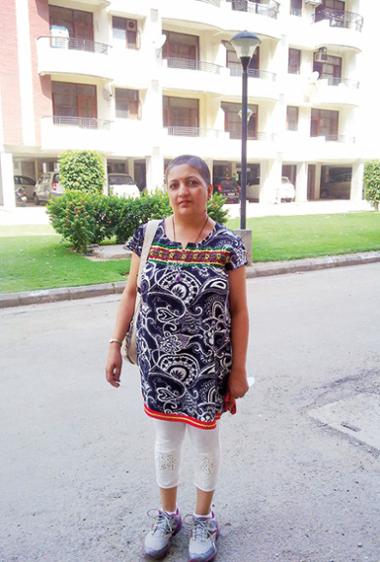
Returning to the UAE in 2016 she found herself with a lot of free time and decided to pick up her long forgotten crochet needles and try making soft toys. Last Christmas, she made a Santa and shared a photograph of it with a few friends. "They were encouraging," she says, "and told me to continue. Those words helped me a great deal." She continued creating lovely, cute toys each more colourful than the other.
For Narine, who recovered completely from the dreaded disease earlier this year, crochet helped her combat negative emotions and channel her energy to creativity. She has since started an Instagram page with her creations and is happy to see the positive comments. She has also found buyers for her toys with many commissioning her for more.
"Every day I wake up with a smile because I know that I am strong. My optimism drives me forward to accept what happened to me as a learning opportunity to understand how much my family loves me," she says.
Caught off guard
Sharjah-based math teacher Neetika Thakur attributes her recovery to the positive energy she imbibed from family, friends and colleagues.
The mother-of-two’s brush with cancer first occurred on her birthday in 2011 when she detected a lump in her left breast. Initially she dismissed it believing it was just the result of a bruise. While on a vacation in India, she mentioned it to her mother-in-law who advised her to consult a doctor. However, her gynaecologist was on vacation so the check up was postponed.
But it was a few months later when her daughter Diksha one day grabbed her and pulled her towards her for a hug that Neetika felt a sudden sharp pain in her breast. "In reflex, I held my chest and sank into a chair. My daughter noticed it, and immediately called my husband who rushed home from work and took me to the hospital for a check up. I still didn’t think anything was wrong," says Neetika.
A week later, contrary to her optimism, she was detected with breast cancer.
According to Dr Rita Daaboul, consultant breast surgeon at Medcare Women and Children Hospital, the most common mistake women commit is ignore lumps in their breast because it does not cause any pain. "Breast cancer is deceptive in that it usually presents with a lump that is not painful. But this hard, irregular lump can grow significantly in a short period of time."
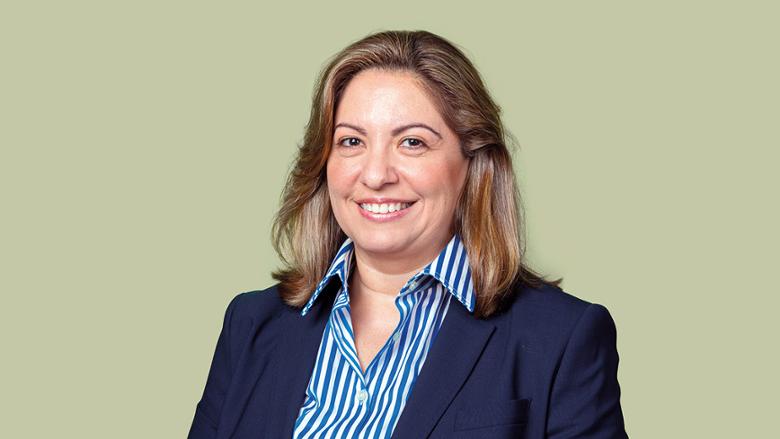
Dr Astha Mishra, specialist obstetrician and gynaecologist at Aster Clinic, advises that women of all ages, irrespective of their state of health, to self-exam regularly. "They should consult their gynaecologist as soon as they notice a lump in the breast, pain, abnormal discharge from nipples, inverted nipples, discoloration and change in texture of breast skin, weight loss and chronic fatigue," she says.
Coping with the condition
The day her result came positive is still etched clearly in Neetika’s memory. "I teared up as I always thought I was healthy. But my husband was immediately in discussion about the next course of action with the doctor," she says.
As they decided to go to India for a second opinion, Neetika’s school principal and director, Vandana Marwaha, visited them offering advice and all help. "She said she was looking forward to me returning healthy and smiling. Those words were embedded in my mind throughout the treatment and it gave me great vigor to fight through the pain," she says.
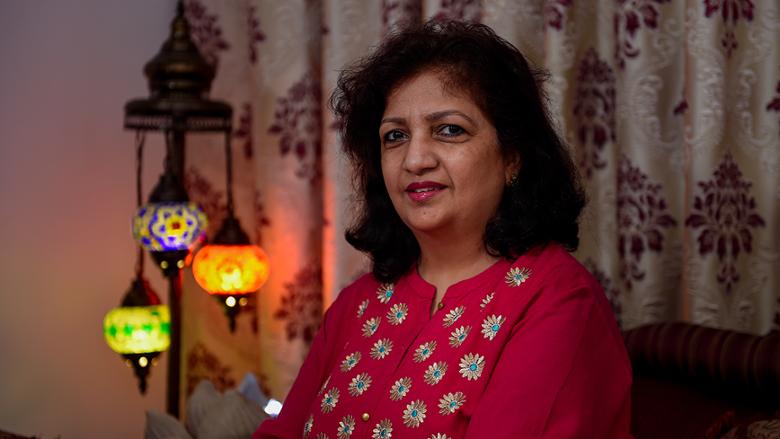
Her son Chirag, who was 12 at the time, googled to know more about the disease and he would constantly assure me that things would turn out fine. "That boosted my spirits too," she says.
A year and a half since she was detected, after three phases of treatment in India, Neetika became cancer-free in October 2012. She returned to the UAE in November and joined school the next day itself.
"Be it the bus driver, school attendants, ancillary staff or colleagues of DPS Sharjah (where she works), everyone would call my husband Ranbir Singh regularly to enquire about the status of my health," she says. "I’m grateful to the Almighty for such lovely colleagues and friends."
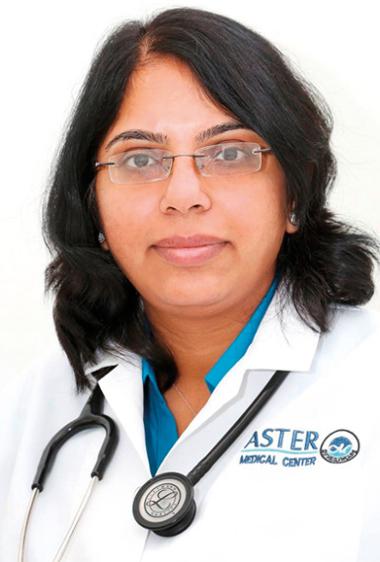
Neetika says her family and students were the motivation for her to get back to normal life as soon as possible. "As I had to leave school in the middle of the term, my mind and heart kept urging me to return and help my students. Just as I keep assuring my students that they shouldn’t fear math as a subject, I also told myself I shouldn’t fear the big C. While waiting for my turn in the hospitals and observing hundreds of patients I understood the seriousness of this disease but did not let it waiver my confidence."
Post-treatment care for breast cancer survivors by Dr Rita Daaboul
• A strong immune system is key to not only prevent breast cancer, but also to fight it. To promote a healthy immune system, regular mild to moderate exercise 2-3 times a week, at least 20 minutes each session helps improve mental and physical well-being.
• A healthy diet is also essential as is adequate levels of vitamin D. Check if you are getting your required vitamins and nutrition.
• It is essential for survivors to have a mammogram, breast ultrasound and check up once every year. They should also self-examine every 1-2 months. Any persistent pain needs to be assessed properly by a doctor.



